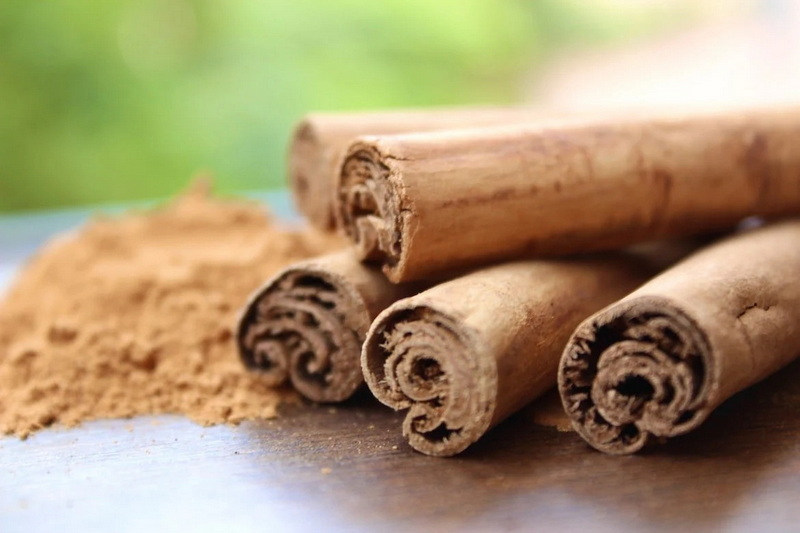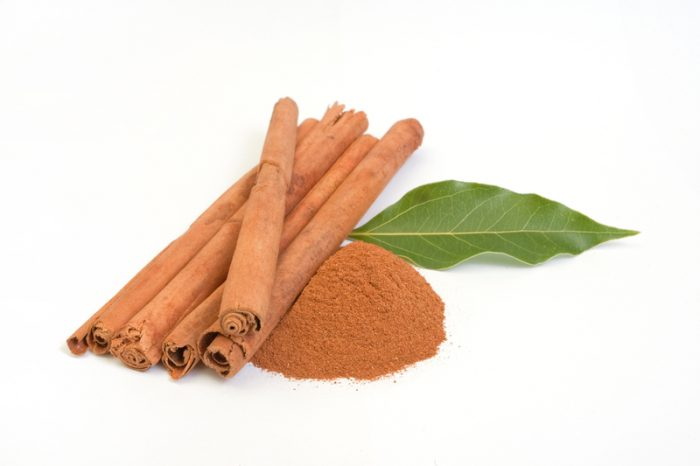Content Menu
● Introduction to Cinnamon Bark Extract
>> Antioxidant Properties
● Anti-Inflammatory Effects
● Antimicrobial Properties
● Anti-Diabetic Effects
● Heart Health Benefits
● Cancer Prevention
● Digestive Health
● Neuroprotective Effects
● Skin and Hair Benefits
● Conclusion
● Frequently Asked Questions
>> 1. What are the main health benefits of cinnamon bark extract?
>> 2. How does cinnamon bark extract help with blood sugar management?
>> 3. Can cinnamon bark extract prevent cancer?
>> 4. Is cinnamon bark extract safe to consume?
>> 5. What is the recommended dosage of cinnamon bark extract?
● Citations:
Cinnamon bark extract has gained significant attention in recent years due to its numerous health benefits, making it a top choice for health supplements. This article will delve into the reasons behind its popularity, exploring its antioxidant, anti-inflammatory, and antimicrobial properties, among others.

Introduction to Cinnamon Bark Extract
Cinnamon bark extract is derived from the bark of the cinnamon tree, primarily Cinnamomum verum (Ceylon cinnamon) or Cinnamomum cassia (Chinese cinnamon). The extract is rich in bioactive compounds such as cinnamaldehyde, which is responsible for its distinct flavor and aroma, as well as its medicinal properties. Ceylon cinnamon is generally considered safer and more beneficial due to its lower coumarin content compared to Chinese cinnamon.
Antioxidant Properties
Cinnamon bark extract is rich in antioxidants, including polyphenols, which help protect the body from oxidative stress. Oxidative stress occurs when there is an imbalance between free radicals and antioxidants in the body, leading to cell damage and contributing to various diseases. The antioxidants in cinnamon can neutralize free radicals, thereby reducing the risk of chronic diseases such as heart disease, cancer, and neurodegenerative disorders.
Anti-Inflammatory Effects
Cinnamon bark extract has potent anti-inflammatory properties, which can help reduce inflammation in the body. Chronic inflammation is linked to various health conditions, including arthritis, diabetes, and cardiovascular diseases. The anti-inflammatory compounds in cinnamon, such as cinnamaldehyde, can modulate inflammatory pathways, providing relief from symptoms associated with these conditions.
Antimicrobial Properties
The antimicrobial properties of cinnamon bark extract make it effective against a wide range of bacteria, viruses, and fungi. Cinnamaldehyde has been shown to inhibit the growth of pathogens such as E. coli, Staphylococcus aureus, and Candida albicans. This makes cinnamon a natural preservative in food and a potential treatment for infections.
Anti-Diabetic Effects
Cinnamon bark extract has been studied for its potential to manage blood sugar levels. It is believed to enhance insulin sensitivity, which can help reduce the risk of developing type 2 diabetes. By improving glucose uptake in cells, cinnamon may also help manage blood sugar spikes. This effect is particularly beneficial for individuals with insulin resistance or those at risk of developing diabetes.

Heart Health Benefits
Cinnamon bark extract may help reduce the risk of heart disease by lowering cholesterol levels and blood pressure. The antioxidants and anti-inflammatory compounds in cinnamon can improve cardiovascular health by reducing inflammation in blood vessels and preventing the formation of blood clots. Additionally, cinnamon's ability to improve insulin sensitivity can also contribute to better heart health by reducing metabolic syndrome risk factors.
Cancer Prevention
Some studies suggest that cinnamon bark extract may have anticancer properties. It can inhibit angiogenesis, the process by which tumors develop new blood vessels to grow. Additionally, cinnamon's antioxidants may help protect against DNA damage, reducing the risk of cancer. While these findings are promising, more research is needed to fully understand cinnamon's role in cancer prevention.
Digestive Health
Cinnamon bark extract may also benefit digestive health by reducing inflammation in the gut and alleviating symptoms of irritable bowel syndrome (IBS). Its antimicrobial properties can help maintain a healthy gut microbiome, which is crucial for immune function and overall well-being. Additionally, cinnamon has been traditionally used to relieve nausea and improve digestion.
Neuroprotective Effects
Cinnamon bark extract has shown potential neuroprotective effects, which may help prevent or slow the progression of neurodegenerative diseases such as Alzheimer's and Parkinson's. The antioxidants and anti-inflammatory compounds in cinnamon can protect neurons from oxidative stress and inflammation, potentially improving cognitive function.
Skin and Hair Benefits
Beyond its internal health benefits, cinnamon bark extract can also be used topically to improve skin and hair health. Its antimicrobial properties can help reduce acne and other skin infections, while its antioxidant properties may protect the skin from damage caused by UV exposure. Additionally, cinnamon can stimulate blood flow, potentially improving hair growth.
Conclusion
Cinnamon bark extract is a versatile supplement that offers a range of health benefits, from antioxidant and anti-inflammatory effects to antimicrobial and anti-diabetic properties. Its potential to improve heart health, aid in cancer prevention, support digestive well-being, and protect against neurodegenerative diseases makes it a popular choice for those seeking natural health solutions. However, while cinnamon is generally safe, high doses can be toxic, so it's important to consult with a healthcare provider before adding it to your regimen.

Frequently Asked Questions
1. What are the main health benefits of cinnamon bark extract?
Cinnamon bark extract is known for its antioxidant, anti-inflammatory, antimicrobial, and anti-diabetic properties. It can help manage blood sugar levels, reduce inflammation, and support heart health.
2. How does cinnamon bark extract help with blood sugar management?
Cinnamon bark extract may enhance insulin sensitivity, which helps cells absorb glucose more effectively, thereby managing blood sugar levels.
3. Can cinnamon bark extract prevent cancer?
While cinnamon has shown potential in inhibiting tumor growth and angiogenesis, more research is needed to confirm its role in cancer prevention.
4. Is cinnamon bark extract safe to consume?
Cinnamon is generally safe when consumed in moderation. However, high doses can be toxic, so it's advisable to consult with a healthcare provider before using it as a supplement.
5. What is the recommended dosage of cinnamon bark extract?
The recommended dosage varies, but typically ranges from 1/2 to 1 teaspoon (2-4 grams) of powder per day. Some studies have used doses between 1 gram and 6 grams.
Citations:
[1] https://www.webmd.com/diet/supplement-guide-cinnamon
[2] https://www.nccih.nih.gov/health/cinnamon
[3] https://pmc.ncbi.nlm.nih.gov/articles/PMC9914695/
[4] https://huggingface.co/openbmb/VisCPM-Chat/raw/main/vocab.txt
[5] https://www.bbcgoodfood.com/health/nutrition/health-benefits-cinnamon
[6] https://images-prod.healthline.com/hlcmsresource/images/AN_images/health-benefits-cinnamon-1296x728.jpg?sa=X&ved=2ahUKEwiHruqo7cKMAxWdyDgGHYp6IZEQ_B16BAgBEAI
[7] https://www.frontiersin.org/journals/chemistry/articles/10.3389/fchem.2023.1194389/full
[8] https://www.webmd.com/diet/health-benefits-ceylon-cinnamon
[9] https://draxe.com/nutrition/health-benefits-cinnamon/
[10] https://pmc.ncbi.nlm.nih.gov/articles/PMC4003790/
[11] https://www.rxlist.com/supplements/cinnamon_bark.htm






























